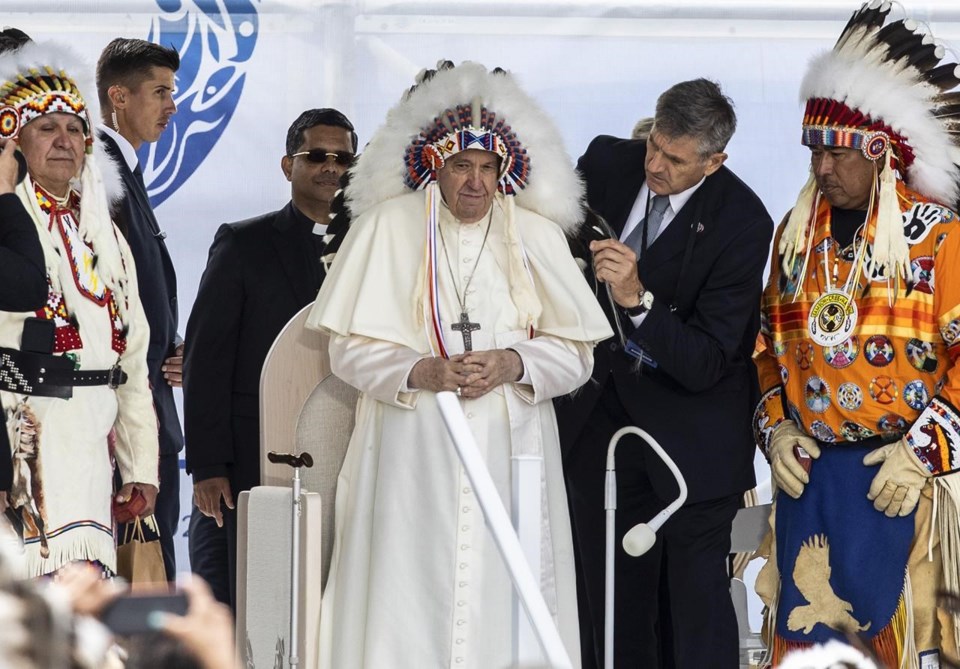In the wake of receiving a long-awaited apology from the leader of the Roman Catholic Church, Phil Fontaine finds himself with a year’s worth of time for contemplation. This milestone marks the culmination of a lifelong struggle for the former Assembly of First Nations national chief – a battle to secure this very apology on Canadian soil.
As he reflects on this significant event, Fontaine emphasizes the profound impact an apology can have. “Without an apology, it would be impossible to forgive,” he remarks, acknowledging the crucial role that a sincere and heartfelt expression of remorse plays in the healing process.
A year has passed since Pope Francis made his momentous arrival in Canada. It was during this significant visit that he uttered his first apology in Maskwacis, where he stood before a gathering of thousands, including survivors, leaders, and community members.
With heartfelt sincerity, Pope Francis expressed remorse for the grave transgressions committed by the Roman Catholic Church, acknowledging its role in perpetrating cultural destruction and imposing forced assimilation upon Indigenous peoples.
Throughout his six-day tour, the pontiff continued to deliver additional apologies as he made stops in Alberta, Quebec, and Nunavut. However, it was during his return flight to Rome that he responded to a journalist’s question, characterizing the abuses endured by Indigenous Peoples as nothing short of genocide.
While the apologies offered by Pope Francis evoked a diverse range of reactions, many Indigenous individuals found them to be a necessary step, the significance lay in the acknowledgment that the head of the Catholic Church was finally recognizing the grave injustices and harms that had been inflicted upon their communities.
Francis faced criticism from those who believed he had not gone far enough in his apologies. On the other hand, some felt that Indigenous Peoples and organizations should sever their ties with the church entirely, as they had already devoted significant energy to the matter. Among the voices were those who demanded tangible actions rather than mere words.
For Fontaine, the apology held immense significance.
The suffering within the residential schools remained concealed at a national level for an extended period, but in 1990, Fontaine shattered the silence when he bravely shared his own experiences at the Fort Alexander Residential School in Manitoba.
A staggering number of approximately 150,000 Indigenous children were compelled to attend these residential schools, with over 60 per cent of them being operated by the Catholic Church.
n 2009, Fontaine journeyed to the Vatican to meet with Pope Benedict, who held the pontiff’s position at that time, and earnestly requested an apology. However, his plea went unanswered, and Benedict did not extend the apology Fontaine sought.
Last year, Fontaine embarked on another journey to the Vatican, accompanied by an Indigenous delegation. On this occasion, Pope Francis offered his first apology and made a solemn commitment to bring his atonement to Canada.
the apology may not have found acceptance from everyone, Fontaine emphasizes that Pope Francis’s plea for forgiveness is merely a part of the church’s ongoing journey towards reconciliation.
“We received the apology each in our own way as individuals,” Fontaine says. “And we decide as individuals whether we want to forgive.”



